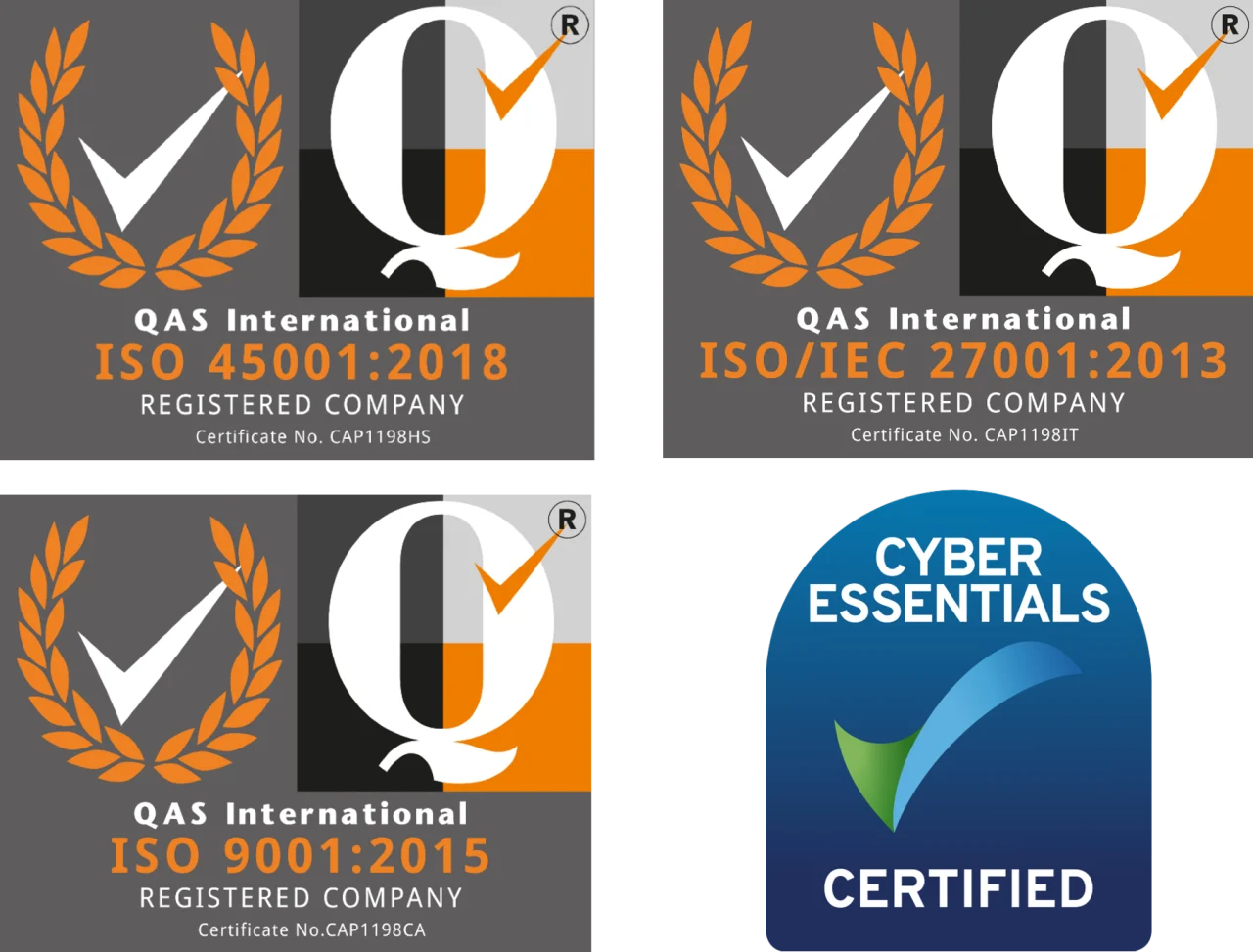How can I choose the right IT Support Provider?
How can I choose the right IT Support Provider?
How can I choose the right IT Support Provider? OK, so if you’re reading this article, we’re going to assume that your Organisation/Company/Charity either don’t currently have an outsourced IT Support Provider OR that you are wanting to change from your current (sometimes called incumbent) provider.
This article is intended to give you a platform to build your own ideas of what constitutes a good provider for YOUR organisation. There is no one provider fits all and almost all IT Support providers will have things that they are good at and things they are not so good at. There is plenty of space in the market for all manner of IT providers. Other things that the article covers are; How can I get better IT Support? Who provides IT Support?
What should my thought process include?
Not all categories will apply to every organisation, each company has a different perspective of what is and isn’t important to them. We are dealing here with personal attachment and relationships. However, the categories below give a range of different things to think about when choosing your new IT Support Provider. For each category we’ve created a section below that outlines some of the things to think about within that specific area. They are in no particular order:
- Certifications
- Experience
- Social Proof
- Green Credentials
- Vendors
- Billing
- Values
- Specialisms
- Packages
- Geography
- Account Managers
- Price
At first glance, many IT Support providers look the same. They all say they have the friendliest or the most experienced approach to service delivery and offer the best value, but is that really true? Absolutely not! We’ve provided a quick Excel spreadsheet at the end of this article which will allow you to add each provider to it and score them in each area.
Certifications
Most IT providers will have information somewhere on their website that sets out which certifications their business has achieved. This can be really important to start to understand how much effort an IT Support provider has gone to, in order to demonstrate their ability. There are certifications around how well their support desk operates such as the certification provided by the Service Desk Institute and around Project Management, such as Prince2. There are more general certifications such as Quality Management Certifications, e.g. ISO 9001. There are also certifications based on Vendors, for example Microsoft have many, many different certifications and accreditations that providers can achieve. The most important certifications at the moment though in the IT world, are around security. Smaller IT providers might have chosen to achieve Cyber Essentials or Cyber Essentials Plus, whereas the larger providers with more structure to their organisation and commitment in this area will almost certainly have achieved ISO 27001 which is much more in-depth, but does require a much larger time investment. Some will combine all 3. When reviewing the providers in your area, be sure to make a note of which certifications each has and if it’s not available on their website – ask them the question.
Score each of your IT Provider options out of 10 against each other based on their certifications.
Experience
IT Providers typically improve as time goes by, and they learn new things. Providers that have been around longer, have proved their resilience and will have gleaned many years of knowledge in the IT industry. As they gain more staff, their knowledge increases further still. However, sometimes, experience can go against them when an organisation is choosing a new provider. For example, if you are looking to purchase the latest and greatest technologies, maybe the older providers aren’t offering those technologies. Think about what you want from a provider and then look for evidence of how long each provider has been around and what experience they might have that’s relevant.
Score each of your provider options out of 10 based on their experience.
Social Proof
To choose the right IT Support Provider, you need to consider Social proof, which is a way of ensuring that what the IT Support Provider says they are able to deliver, you can see publicly. Sometimes, this is in the form of testimonials and case-studies on their website, but more commonly these days, you can find providers on all of the major Social Media platforms, Twitter, Facebook, LinkedIn & some you’ll even find on Instagram. Visit their pages, find out what they are posting. Are they posting information about their customers and tagging them? If so, do their customers seem aligned with your organisation? Are they posting information that would be helpful to you, such as when they are experiencing high call volumes or when the vendors they support are having problems? Are they producing content that might help you to better understand the IT Industry and how it affects you as a business?
Score each of your IT Provider options out of 10 against each other based on the Social Proof you can find.
Green Credentials
To choose the right IT Support Provider, you need to consider their Green Credentials. For every organisation in the country, in fact, in the world, it’s becoming more and more important that their supply chain are considering their impact on the environment. Check through the IT Provider’s website, do they have any of their attitude or aptitude to climate change and improving the environment visible to you? Perhaps they are using renewable energy sources, or electric vehicles. Maybe they even have an ISO Standard relating to environmental practices such as ISO 14001 or 50001.
Score each of your IT Provider options out of 10 against each other based on their Green Credentials.
Vendors
To choose the right IT Support Provider, you need to consider which vendors they use. IT providers work with Vendors of all types (A Vendor is a manufacturer or creator of a specific Software Platform or Hardware Solution). If your organisation is already using a particular Vendor’s solution, can you find an IT Provider in your local area that is able to support this solution, or are you willing to change it? A great example of this is that some IT Providers prefer to use Microsoft 365 for emails and cloud services, whereas other Providers prefer to use Google’s platform. Some may even have their own software solutions. Use the website and Social Media pages of each provider to find out whether they are specialists in the platform you prefer.
Score each of your IT Provider options out of 10 against each other based on their Vendor choices.
Billing
This might seem like an odd category to consider, but it is, after all, the main reason each of us are in business – to earn money. The IT industry is notoriously tricky when it comes to billing. Providers try to keep the mystery in their billing, which makes it less transparent to work out what you are paying for. Find a provider that is able to communicate to you how much you will pay and what you will pay for, in a simplistic fashion. Some providers will give you their pricing for the main elements of their service, directly on their website, for others, you’ll have to ask them (or you could ask some of their customers!). Does the provider even talk about cost on their website (even in an unspecific way), if not, be wary. If you went into a shop and none of the items had pricing, would you ask how much, or just walk away?
Score each of your IT Provider options out of 10 against each other based on the simplicity and transparency of their billing.
Values
This is a really important one. Businesses of all types have a culture, a way of existing that each of their staff members adhere to. Some organisations have these written down and others don’t, but the culture still exists. What can you understand about the culture within the IT provider, before you even contact them? Can you see that they care about their customers? Can you see that they care about their staff (for example on their social media pages)? What are your own organisation’s values? Do they marry up with the Provider? Larger Providers will even have their Vision, Mission & Values publicly available on their website, usually somewhere in their About Us section. What can you glean from this?
Score each of your IT Provider options out of 10 against each other based on their values and how they fit with your own.

Specialisms
Many IT Support Providers will have things that they specialise in. Sometimes, those specialisms are related to a specific industry (such as manufacturing or charitable) and other times it’s more product or service-led, such as IT Security or Telecoms or ERP Systems. In this area, you need to work out your needs and then map the suppliers to the need. For example, if you are a manufacturing business, would you prefer that you had an IT provider that had lots of other manufacturing customers, so they understand the technical challenges OR would you prefer that they didn’t have other manufacturing customers because you want them to look at things from a fresh point of view?
Score each of your IT Provider options out of 10 against each other based on how they fit your requirement in this area.
Packages
OK, so you might not be able to obtain the information about the packages that the different providers offer without getting in touch with them directly. However, it is important that you understand that different providers package their services differently. Some providers will offer “remote only” contracts where they will fix anything they can from their offices, but they will never visit your premises. Sometimes, they might offer add-ons to the remote only contract, whereby they WILL visit your premises, but they will charge you each time they have to visit. Next up the chain would be an unlimited SUPPORT contract, where they will fix things remotely or onsite, all inclusive within the package BUT they will not offer to change things, upgrade things or install things within that package. Those are the main 3 support types in use at the moment, but there are also some providers that offer different options. Pay-as-you-go is one such option, basically you pay for the time you use, by the minute, whenever you need it. These agreements won’t usually include any pro-active support, checking whether things are working and so on. An unlimited support contract is the option chosen by most organisations because it makes budgeting for support very simple. It will also usually include pro-active maintenance as it will usually save them time keeping things running rather than fixing things.
The overarching point in this area is to make sure that when comparing providers, you care comparing apples with apples, otherwise you might end up with something that you didn’t bargain for!
Score each of your provider options out of 10 in this area based on how you would prefer to pay.

Geography – How can I choose the right IT Support Provider?
If you have chosen an unlimited package option, then you should definitely consider the geographical location of your provider. If they are far away, they are going to be much more reluctant to visit your premises in the event of something going wrong, because it costs them a lot of money to do so. They are way more likely to try to fix things remotely or using you as their “remote hands” to reboot things and check things. If they are on your doorstep then of course, it’s much easier (and cheaper) for them to “nip round” to sort a problem out. If it’s a remote only contract, this doesn’t really matter, but what happens if you do get a problem that can’t be fixed remotely, what will happen then? Think carefully about your choice of provider in terms of Geography. If you are in Sheffield, maybe you want to select a provider that’s based in Sheffield too!
Score each of your provider options out of 10 based on Geography, if they are in the next door building, they would be a 10, if they are the other end of the country then a 1!
Account Management
Most large IT Providers will allocate many of their customers with an account manager. This Account Manager would act as your point of contact for strategic matters and/or customer service issues. This person wouldn’t be who you called if you had a technical fault, but would be there to help if the IT Support Desk hadn’t responded in a timely fashion or something couldn’t be fixed. They would also help you to create a Roadmap for improvement of your IT Systems as well as assisting you with things like budget planning. Added to that, if you needed to make changes (for example you were moving offices), you would get in touch with your Account Manager to help you to plan that change. Other strategic areas that they might be able to help with would be things like Software planning, going from old systems to new or even implementing software systems that you don’t currently have (these would be known as Digital Transformation). You need to work out whether you want a point of contact that can help you with your planning or not. If you do, can you find evidence that the providers on your list offer this service? Again, review their website and social media. If you can’t find evidence, maybe ask them?
Score each of your IT provider options out of 10 based on how they fit with your requirements in this area.

Price
Whilst we said at the beginning of this article that the list was in no-particular order, we’ve left price right until the end for a reason. It should be the last thing on your agenda. That doesn’t mean to say that you shouldn’t think about it, of course you should, but it should come at the end of the thought process. The first thing you need to do is to work out who you would work with if money was no object. Once you’ve got the answer to that question, you can work out whether you can afford them. If you can’t, you can move down your list, but you do so knowing what the pros and cons of working with each company on your list are.
Summary
In conclusion, there are many, many things to think about when choosing an IT Support Partner. Consider all the things above and put your scores onto the matrix using the link below. It will really help you to get to grips with who you would prefer to work with. If you can’t source any evidence in each area, score them zero, until you are able to find that evidence (even if you have to ask them).
You can find out more about ESP by visiting other areas of our site. If you wanted to discuss the article in more detail, don’t hesitate to drop us a message via our Contact page, or call us on 03302020118. ESP Provides IT Support in Sheffield.

